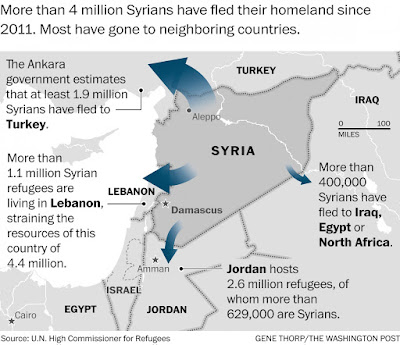What if a "reform" made the life of 1.5 million U.S. households with approximately 3 million children dramatically more challenging -- and scarcely anyone but the unfortunates themselves noticed? In
$2.00 a Day: Living on Almost Nothing in America that's what social scientists Kathryn Edin and H. Luke Shaefer document, both vividly and convincingly. The "welfare reform" of 1996 has created a huge, largely invisible class of destitute families who struggle to get by in our cash economy with only the tiny sum that the World Bank uses as the marker of deepest global poverty.
Our intuition is not entirely accurate about who these families are:
... the experience of living below the $2-a-day threshold didn't discriminate by family type or race. While single mother families were most at risk of falling into a spell of extreme destitution, more than a third of the households in $2-a-day poverty were headed by a married couple. ... the rate of growth [in this extreme situation] was highest among African Americans and Hispanics. Nearly half of the $2-a-day poor were white.
Food stamps (SNAP) and a few housing subsidies help, but since around 2000, the number of these extremely poor people has increased 50 percent.
These researchers went looking for people in this category whose stories were representative in both small and large cities and in rural areas. They thought it might be hard to find suitable subjects; in fact it was relatively easy. The book delves deeply into the stories of eight families, their survival strategies, their ups and downs (instability is the name of the game when you are that poor), their delights, and their values.
There's no question the 1996 welfare reform has had an effect. Meant to wean poor mothers off "dependence" and get them into the labor force, there's no question that today to be in $2-a-day poverty is work. And paying work is what poor people now most want, but struggle to find and keep.
The "welfare reform" assumed a stable growing economy where everyone could get jobs and poor working people would be buoyed by the Earned Income Tax Credit (EITC) which raises the effective incomes of low wage workers. But the EITC does nothing for the officially unemployed. For a while in the late 1990s expansion, "reform" more or less "succeeded," at least for some, though many still cycled from crisis to crisis, in and out of wage employment. But when the economy stagnated and then crashed in the '00s, there turned out to be no safety net for many.
And the poor have internalized the values of the reformers. A single mom insisted that
... to be a good parent, she had to model the value of education in getting a job. For these single mothers, the idea of returning to welfare violated their views of what being a good parent required, adding a self-imposed stigma to the potent societal stigma that came with claiming benefits ...
As far as they know, "welfare" is something that "they don't give out no more." Even at the depths of the 2008 economic implosion, TANF (state-run cash assistance program) rolls didn't grow; the poor expect no help from the state.
Edin and Shaefer report the difficulties the low-wage work market throws up that prevent really poor people from getting and keeping jobs: lack of transportation, need for internet access, expensive housing, short shifts, unreliable schedules, and always racial discrimination against African Americans. This is all true for most low wage workers. But the people who fall the furthest often have additional obstacles to escaping from poverty:
... they've had their share of hard luck; they've made their share of bad moves; they have other personal liabilities (asthma, or the same name as a notorious ex-con, for example); and their kin pull them down as often as they lift them up. ...
To a large extent, chance determines who stays employed and scrapes by and who falls out of the job market.
So what do $2-a-day people do? Move in with family members, often no better off or exploitative. Sell their blood plasma. Collect scrap metal and recycling. Illegally self off their food stamps to buy clothes for kids. Learn the round of food pantries and clothing giveaways. Sell the use of their kids' Social Security numbers. Learn to get by with society's scraps, to reuse and do without. Go hungry. Dream. There are few people who work harder, but we call these people unemployed.
These authors believe that the "reform" which trashed the safety net became possible, even inevitable, because
any program so out of sync with American values was doomed to fail. [Cash assistance] created a class of outcasts forced to trade their sense of citizenship for relief. ...
Our approach to ending $2-a-day poverty is guided by three principles: (1) all deserve the opportunity to work [for money]; (2) parents should be able to raise their children in a place of their own; and (3) not every parent will be able to work, or work all the time, but parents' well-being, and the well-being of their children, should nonetheless be ensured.
Nice ideas, but count me skeptical. Rapid changes -- technological, cultural, racial, international -- and the fears they unleash, are making this a pretty nasty society these days. Too often, too many of us, wish we could wish the Others (Those People) away. Too often, too many of us, shut out awareness of others' pain. A viable safety net arises from the knowledge "we're all in this together." Too often, too many of us, think erroneously that we're on our own.
And the very poor have no choice but to keep working away to survive.

















































